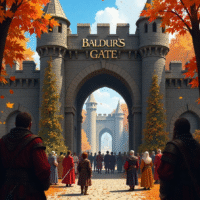Understanding the Dynamics of Iran Nuclear Negotiations
A significant shift in international diplomacy has unfolded as **Top Trump Advisor Steven Witkoff** takes the helm in crucial negotiations surrounding Iran’s nuclear program. With tensions running high and global attention fixed on the outcome, Witkoff’s involvement underscores both a strategic pivot and a complex geopolitical challenge. This pivotal moment could reshape international relations and impact global security.
The Role of Steven Witkoff
Steven Witkoff, known primarily as a formidable force in the real estate industry, has emerged as an influential diplomat in the Trump administration’s efforts to manage Iran’s nuclear ambitions. The transition from real estate magnate to international negotiator is unexpected yet crudely indicative of the current administration’s unconventional approach to foreign policy.
Background in Business and Diplomacy
The decision to leverage Witkoff’s acumen is rooted in his ability to negotiate high-stakes deals and his capacity to navigate complex financial landscapes. These skills translate into strategic advantages when dealing with Iran, a nation with its intricate politics and economic pressures. Equipped with a business-oriented mindset, Witkoff approaches these negotiations determined to produce tangible results beneficial to national security interests.
The Stakes of Iran Nuclear Talks
This negotiation marks a critical juncture for several reason:
- Global Security: At its heart, the Iran nuclear talks revolve around addressing the development of nuclear weapons. The outcomes have far-reaching implications for global peace and stability.
- Economic Sanctions: Success in negotiations could lead to changes in the harsh economic sanctions imposed on Iran, potentially rejuvenating the nation’s economy.
- Regional Stability: Iran’s nuclear capabilities are closely monitored by neighboring countries, and advancements in diplomacy could enhance security in the Middle East.
- International Relations: The talks provide an avenue to reinforce or redefine alliances among participating countries beyond the immediate parties involved.
Historical Context
The historical context of the Iran nuclear program is marked by a myriad of attempts by the international community to curb its progress. Various administrations, none more controversially than the Trump administration with its withdrawal from the Joint Comprehensive Plan of Action (JCPOA), have struggled to effectively contain Iran’s ambitions. The ongoing negotiations under Witkoff’s leadership represent the latest endeavor in this intricate dance of diplomacy.
The Strategy: What’s at Stake for the U.S.
Witkoff’s strategy hinges on a layered approach, encompassing the following components:
- Economic Pearls: Reinstate or intensify economic sanctions to pressure Iran into compliance.
- Diplomatic Channels: Engage traditional allies and adversaries alike to forge a comprehensive bloc in negotiations.
- Military Watchfulness: Keep military options tacitly in play to project strength and commitment to non-proliferation.
Collaborations and Challenges
Navigating internal and external pressures presents several challenges. Domestically, negotiating teams must contend with political figures and public opinion. Internationally, satisfying the myriad of stakeholders — Israel, European allies, as well as Russia and China — adds layers of complexity to the negotiation strategy.
Expected Outcomes and Possibilities
The negotiations could yield several potential outcomes:
- Renewed Accord: A successful leadership could result in a return to some form of the JCPOA, albeit with adjustments to ensure wider acceptance and stricter compliance monitoring.
- Persistent Stalemate: Despite diplomatic efforts, stalemate remains a possibility, further straining global relations.
- Escalation: A breakdown in talks could escalate tensions, leading to increased sanctions or, in the worst-case scenario, military confrontation.
Potential for Economic Shifts
With U.S. economic interests in play, a resolution could unlock significant potential for American and global markets. Sanctions relief could open doors for valuable trade agreements, new business opportunities, and enhanced global economic stability.
In Conclusion: The Future Beyond the Negotiation Table
The strategic involvement of Steven Witkoff in the Iran nuclear negotiations symbolizes a broader strategic recalibration by the Trump administration, aiming for resolution while balancing direct and indirect pressures. The trajectory of these talks not only affects U.S.-Iran relations but potentially reshapes geopolitical dynamics across the global stage.
Anticipating the outcomes, **financial markets**, **diplomatic relations**, and **military policies** across the globe remain keenly attuned to the developments at the negotiating table, highlighting the profound interconnectedness of commerce, diplomacy, and global security in today’s world. The unfolding drama behind closed doors is not just a political narrative— it is a testament to the delicate art of negotiation poised at the precipice of history.













